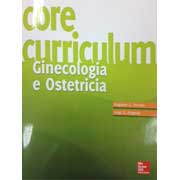255. Poor outcome of elderly patients with platinum-sensitive recurrent ovarian cancer: Results from the SOCRATES retrospective study.
Pignata S, Ferrandina G, Scarfone G, Scollo P, Odicino F, Cormio G, Katsaros D, Frigerio L, Mereu L,Ghezzi F, Manzione L, Lauria R, Breda E, Alletti DG, Ballardini M, Vernaglia A, Sorio R, Tumolo S, Musso P, Magni G, Pisano C, Morabito A.
BACKGROUND: Elderly patients with ovarian carcinoma have a poorer prognosis compared with their younger counterpart, and this depends in most cases on undertreatment. The aim of this study was to evaluate, retrospectively, the pattern of care and the prognosis of elderly patients with platinum-sensitive recurrent ovarian cancer. The SOCRATES study retrospectively assessed the pattern of care of a cohort of patients with recurrent platinum-sensitive ovarian cancer observed in the years 2000-2002 in 37 Italian centres. Data were collected between April and September 2005. PATIENTS AND METHODS: Patients with recurrent ovarian cancer with >6 months of platinum free interval were considered eligible. Four-hundred-ninety-three patient files were collected and 425 were considered eligible and analyzed. Ninety-four patients with age >/=70 years and 331 patients with age <70 years were analyzed. RESULTS: Recurrence free interval (RFI), PS, and number of disease sites were similar among the two groups. A lower proportion of elderly patients underwent secondary cytoreduction (8.9% compared to 23.9%; p=0.0018). The mean number of chemotherapy lines received for recurrence was 2.7 and 2.5 in young and aged patients, respectively. Elderly patients received more frequently at second line single agent platinum than platinum-combination therapy or other non-platinum chemotherapy. The response rate to the second line chemotherapy was higher in younger patients than in the elderly population (CR+PR, younger: 67.2%; elderly: 46.5%; p=0.0004). Median overall survival from recurrence was 30.7 months in the younger patients and 23.6 months in the elderly group (p=0.0037). At multivariate analysis, number of disease sites (>1 vs. 1), performance status at recurrence (2-3 vs. 0-1), RFI (6-12 months vs. >12 months), age at recurrence, were independently associated with survival. CONCLUSION: Elderly patients with platinum-sensitive recurrent ovarian cancer receive less surgery and chemotherapy. Response to chemotherapy is better in younger patients. Age is an unfavourable factor independently associated to a worst prognosis.
28 Aprile 2009
